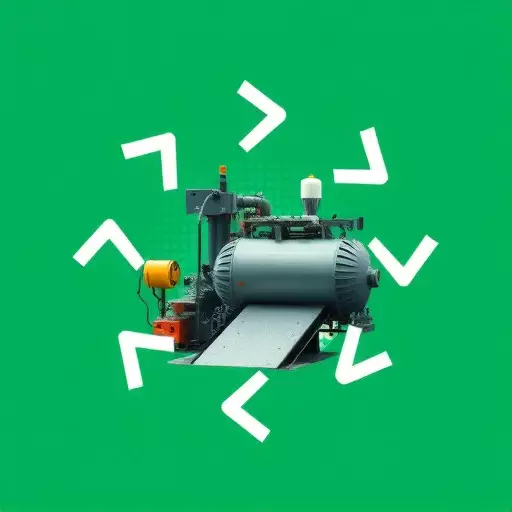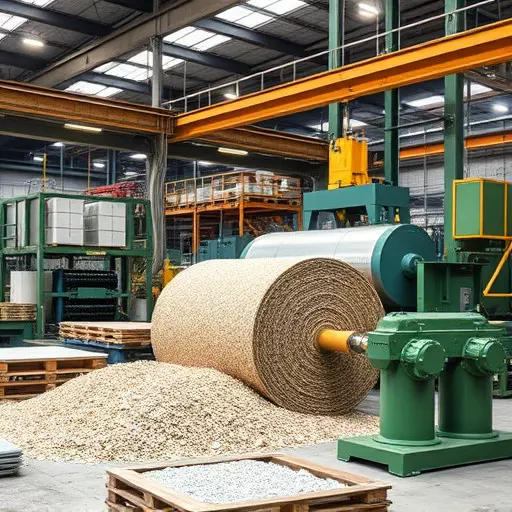Biodegradable materials are driving innovation in eco-friendly manufacturing and sustainable material processing in Toledo and globally, offering a path to a circular economy. Growing consumer awareness and stricter regulations are shifting the focus towards sustainable practices, prioritizing reduced ecological footprints and resource conservation. Despite challenges like high development costs, technical complexities, and gaining consumer acceptance, the demand for sustainable solutions is fostering innovation. In Toledo, eco-friendly manufacturing methods transform linear production models into closed-loop systems, minimizing waste and environmental impact through biodegradable materials that safely decompose without damaging ecosystems.
In an era where sustainability is paramount, biodegradable materials emerge as a beacon of hope for a greener future. This article explores the transformative potential of these eco-conscious alternatives in the realm of sustainable material processing and their pivotal role in eco-friendly manufacturing. We delve into how the concept of the circular economy is intertwining with biodegradables to create a sustainable pathway forward, addressing challenges while highlighting the immense benefits for our planet.
- Understanding Biodegradable Materials: Their Role in Sustainable Material Processing
- The Shift Towards Eco-Friendly Manufacturing: Benefits and Challenges
- Circular Economy and Biodegradables: A Pathway to a Greener Future
Understanding Biodegradable Materials: Their Role in Sustainable Material Processing
Biodegradable materials are an essential component in the pursuit of a more sustainable future. Their role extends far beyond being an alternative to conventional options; they are drivers of innovation in eco-friendly manufacturing and sustainable material processing in Toledo and globally. By harnessing the power of nature, these materials offer a path towards a circular economy where waste is minimized and resources are continually cycled.
In the context of sustainable material processing, biodegradable substances play a pivotal role in reducing environmental impact. They provide an opportunity to create products that not only minimize pollution but also support ecological balance. As eco-friendly manufacturing gains momentum, the integration of these materials into various industries is set to redefine production methods, fostering a more harmonious relationship between human activities and the planet’s health.
The Shift Towards Eco-Friendly Manufacturing: Benefits and Challenges
The shift towards eco-friendly manufacturing is a growing trend, driven by consumers’ increasing awareness of environmental issues and governments’ stricter regulations. This paradigm shift prioritizes sustainable material processing in Toledo and beyond, aiming to minimize the ecological footprint associated with traditional manufacturing methods. The benefits are multifold; eco-friendly practices reduce pollution, conserve natural resources, and promote a circular economy where waste is minimized or eliminated. Moreover, these methods often lead to cost savings for manufacturers and enhanced brand reputation for companies adopting them.
However, challenges remain. Developing and implementing biodegradable alternatives to conventional materials can be expensive and technically demanding. Ensuring the durability and functionality of eco-friendly products while maintaining low environmental impact is a delicate balance. Additionally, consumer acceptance and understanding of these new materials require education and marketing efforts. Despite these hurdles, the demand for sustainable solutions is driving innovation, and many believe that embracing eco-friendly manufacturing is not just a trend but an essential step towards a greener future.
Circular Economy and Biodegradables: A Pathway to a Greener Future
In the pursuit of a greener future, the circular economy and biodegradable materials are at the forefront of sustainable material processing in Toledo and beyond. Eco-friendly manufacturing techniques are revolutionizing the way we produce goods, shifting from a linear take-make-dispose model to a closed-loop system that minimizes waste and maximizes resource value. By embracing the circular economy, industries can significantly reduce their environmental footprint.
Biodegradable materials play a pivotal role in this transformation. They offer a viable alternative to traditional, non-biodegradable options, ensuring that products and packaging can safely decompose without harming ecosystems. As demand for sustainable material processing in Toledo grows, innovative manufacturers are developing advanced eco-friendly manufacturing methods, contributing to a more circular economy and a healthier planet.


